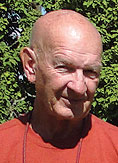 It was Albert Einstein who famously said, “The only source of knowledge is experience.” Experience and wisdom are the two words that first come to mind when you meet Gene Pharr of Lincoln, Ark. Gene is steeped in the hands-on knowledge that comes with growing up on a chicken and turkey farm in Lincoln. Gene expanded his experience when he headed to college at the University of Arkansas, where he graduated with his degree in Animal Science in 1975. He started working as a turkey serviceman for the Campbell Soup Company after graduation, where he jokes that he was a bridge across the cultural divide for the company.
It was Albert Einstein who famously said, “The only source of knowledge is experience.” Experience and wisdom are the two words that first come to mind when you meet Gene Pharr of Lincoln, Ark. Gene is steeped in the hands-on knowledge that comes with growing up on a chicken and turkey farm in Lincoln. Gene expanded his experience when he headed to college at the University of Arkansas, where he graduated with his degree in Animal Science in 1975. He started working as a turkey serviceman for the Campbell Soup Company after graduation, where he jokes that he was a bridge across the cultural divide for the company.
“Campbell’s is a Canadian company, and their growers were much more accepting of a hometown boy being their serviceman than the guys they’d hired before from New Jersey and Canada.” Gene worked for Campbell’s for over 20 years and became their manager of poultry operations.
Hometown and family are the most important things to Gene. Gene not only has developed the wisdom that comes from running a large commercial poultry operation, but he has years experience of being a grower himself. Gene and his wife Cindy grow broilers for Simmons foods on their farm that was originally a part of Gene’s father’s place. They built five 43 by 500 foot houses ten years ago with solid sidewalls, tunnel ventilation and spray pads. Cindy handles the books for the farm. Gene grows straight run birds for George’s, meaning that unlike in the turkey industry he used to work in, the birds are mixed sex and grown to the same age of 54 days. Gene said he is proud of his daughter, Jennifer who is currently a medical student in Little Rock at UAMS.
Change and innovation have also shaped Gene’s experience in the poultry industry. Gene has lived through all the changes that have come with the Oklahoma lawsuit, the growth of the industry and the changes in the environment around him. Litter management plans and phosphorous measurements are a part of Gene’s daily life now. The Arkansas Natural Resources Commission and county conservation districts compile data for the statewide poultry registry. All chicken farmers with at least 2,500 confined birds are required to register their birds each year. The effort began in 2004 after Oklahoma officials questioned Arkansas environmental workers about chicken litter removal methods. Gene points out that this registry was developed to protect growers by showing where their litter is going.
Being innovative and a good custodian of the environment and his land is important to Gene. Gene has served since 2007 as the Chairman of the Washington County Soil and Water Conservation District. The mission of the Conservation District is to work in cooperation with local, state and federal agencies to provide education and information to the public, manage nutrients, minimize soil erosion, provide technical assistance to local partners and increase the efficiency of district employees and operations. They encourage landowners to develop long term and short term goals to maximize sustainability. The district also functions as a voice and advocate for land owners with concerns about environmental issues to the appropriate agencies.
Gene himself is looking to his own farm for sustainable projects for the future. He plans on using a pond on his property to water his houses, rather than relying on using city water. The other benefit of this pond would be that it would collect any runoff from the houses and use a sand filter to clean the water.
If ever there is a bit of knowledge you’d like to glean without having to do it the hard way, Gene Pharr is your man. He’s seen the poultry industry through its many cycles, and even though he’s retired and raising his own birds now, he’s very generous with the time he gives to the Conservation District and the other organizations with which he volunteers. You might call him a professor of poultry.







